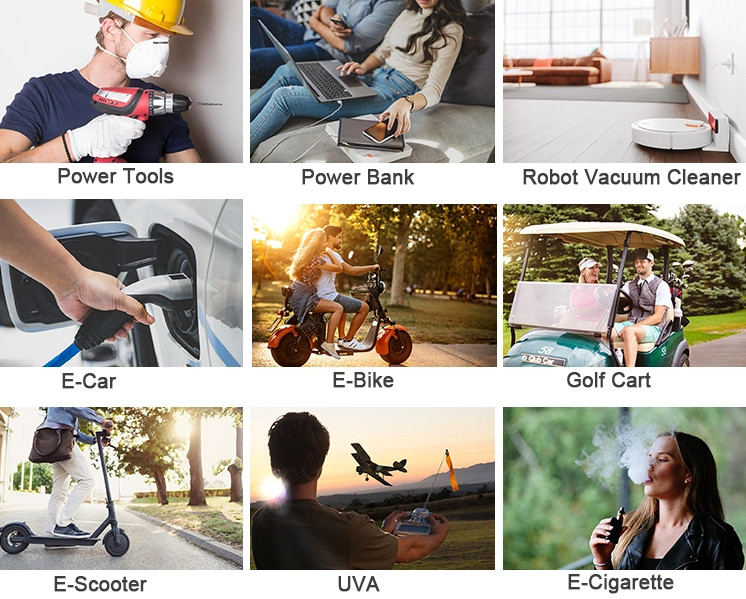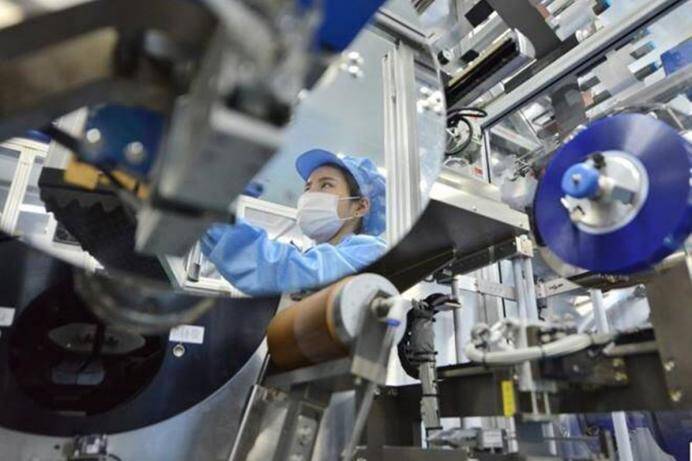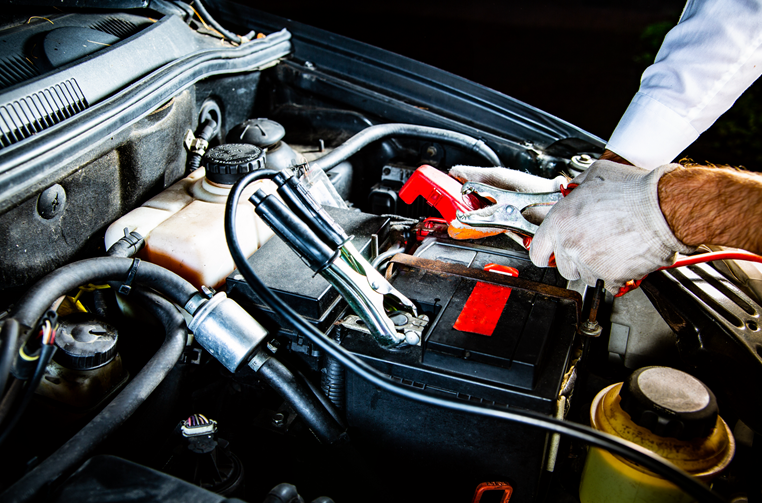Revolutionizing the Energy Industry: The Impact of Smart Grids and Lithium Batteries
In recent years, there has been a growing concern about the need to transition towards cleaner and more sustainable sources of energy. With the increasing demand for electricity and the urgency to reduce greenhouse gas emissions, the energy industry has been forced to explore new technologies and innovations. Two of the most promising advancements that are revolutionizing the energy industry are smart grids and lithium batteries.
Smart grids are a modernized version of the traditional electrical grid system. They incorporate advanced communication and automation technologies to optimize the generation, distribution, and consumption of electricity. By utilizing a network of sensors, meters, and control devices, smart grids enable real-time monitoring and management of energy flow. This allows for better coordination between power plants, renewable energy sources, and consumers, resulting in improved efficiency and reliability.
One of the key benefits of smart grids is their ability to integrate renewable energy sources into the grid. Traditional grids were designed to accommodate centralized power plants that rely on fossil fuels. However, with the increasing adoption of solar and wind energy, the generation of electricity is becoming more decentralized. Smart grids are capable of handling the variability and intermittency of renewable energy sources by dynamically adjusting the distribution and consumption of electricity. This not only reduces reliance on fossil fuels but also promotes the use of clean energy.
Lithium batteries, on the other hand, have emerged as a game-changer in the energy storage sector. Lithium-ion batteries, in particular, have gained popularity due to their high energy density, long cycle life, and fast charging capabilities. These batteries are widely used in portable electronic devices, electric vehicles, and now, in grid-scale energy storage systems.
The integration of lithium batteries into the energy industry has several advantages. Firstly, it enables better utilization of renewable energy. Energy generated from solar panels or wind turbines can be stored in lithium batteries during periods of low demand and released during peak hours. This reduces the need for backup power plants fueled by fossil fuels and allows for a more efficient use of clean energy.
Secondly, lithium batteries enhance grid stability and reliability. They provide a reliable source of power during blackouts or grid failures, ensuring uninterrupted electricity supply to critical infrastructure and residential areas. Additionally, they help balance the supply and demand of electricity, reducing the risk of power outages and grid instability.
Furthermore, lithium batteries facilitate the electrification of transportation. As the world moves towards a greener future, the demand for electric vehicles is increasing rapidly. Lithium batteries enable long-range driving, fast charging, and improved performance of electric vehicles, making them a viable alternative to traditional internal combustion engine vehicles. This not only reduces greenhouse gas emissions but also decreases our dependence on fossil fuels.
Despite these numerous benefits, there are still challenges that need to be addressed for the widespread adoption of smart grids and lithium batteries. One major hurdle is the cost. While the prices of lithium batteries have been decreasing steadily, they still remain relatively expensive compared to traditional energy storage options. Additionally, the installation and infrastructure costs associated with smart grids can be significant.

Another challenge is the need for regulations and policies that support the integration of these technologies. Governments and regulatory bodies need to incentivize the deployment of smart grids and lithium batteries through financial incentives and favorable policies. This will encourage investment in research and development, promote innovation, and accelerate the transition towards a cleaner and more sustainable energy future.
In conclusion, smart grids and lithium batteries are revolutionizing the energy industry by enabling the integration of renewable energy sources, enhancing grid stability, and promoting the electrification of transportation. While there are challenges to overcome, the potential benefits are significant. With continued advancements in technology, increased investment, and supportive policies, smart grids and lithium batteries have the power to reshape the energy landscape and pave the way towards a more sustainable future.
-
 When it comes to marine vehicles, the reliable starting battery is the heartbeat that gets the engine running. Whether you are embarking on a thrilling fishing expedition or cruising through the open waters, a dependable marine starting battery is essential to power up your vessel. In this article, we will dive deep into the world of marine starting batteries, exploring...더 읽어보세요
When it comes to marine vehicles, the reliable starting battery is the heartbeat that gets the engine running. Whether you are embarking on a thrilling fishing expedition or cruising through the open waters, a dependable marine starting battery is essential to power up your vessel. In this article, we will dive deep into the world of marine starting batteries, exploring...더 읽어보세요 -
 Introduction: In today's rapidly advancing industrial landscape, the demand for reliable and efficient power solutions has never been higher. Industrial applications heavily rely on a continuous and uninterrupted power supply to ensure smooth operations and maximize productivity. Industrial Power Products (IPP) batteries have emerged as a reliable and versatile solution to meet these requirements. This article explores the various ways...더 읽어보세요
Introduction: In today's rapidly advancing industrial landscape, the demand for reliable and efficient power solutions has never been higher. Industrial applications heavily rely on a continuous and uninterrupted power supply to ensure smooth operations and maximize productivity. Industrial Power Products (IPP) batteries have emerged as a reliable and versatile solution to meet these requirements. This article explores the various ways...더 읽어보세요 -
 Against the backdrop of global energy transition and environmental protection, lithium iron phosphate battery, as a high-performance, high-safety lithium-ion battery, is gradually becoming a shining new star in the field of new energy. With its unique material properties and wide range of application scenarios, lithium iron phosphate batteries have great potential and broad market prospects in many fields, such as...더 읽어보세요
Against the backdrop of global energy transition and environmental protection, lithium iron phosphate battery, as a high-performance, high-safety lithium-ion battery, is gradually becoming a shining new star in the field of new energy. With its unique material properties and wide range of application scenarios, lithium iron phosphate batteries have great potential and broad market prospects in many fields, such as...더 읽어보세요 -
 There has been a significant increase in the demand for portable electronic products such as smartphones, tablets, laptops, and wearable devices. These devices have become an integral part of our daily lives, providing us with convenience and connectivity on the go. One of the key components that enable these devices to function seamlessly is the lithium battery technology. Lithium...더 읽어보세요
There has been a significant increase in the demand for portable electronic products such as smartphones, tablets, laptops, and wearable devices. These devices have become an integral part of our daily lives, providing us with convenience and connectivity on the go. One of the key components that enable these devices to function seamlessly is the lithium battery technology. Lithium...더 읽어보세요 -
 In today's fast-paced world, staying connected and having access to power is more important than ever. Whether you are on a camping trip, working remotely, or simply going about your daily routine, having a reliable power source for your devices is crucial. This is where the high capacity 12V 200Ah LiFePO4 lithium battery comes into play. With its efficient power...더 읽어보세요
In today's fast-paced world, staying connected and having access to power is more important than ever. Whether you are on a camping trip, working remotely, or simply going about your daily routine, having a reliable power source for your devices is crucial. This is where the high capacity 12V 200Ah LiFePO4 lithium battery comes into play. With its efficient power...더 읽어보세요 -
 리튬 이온 배터리는 스마트폰에서 전기 자동차에 이르기까지 일상적인 장치에 전원을 공급하는 방식에 혁명을 일으켰습니다. 가장 일반적인 유형의 리튬 이온 배터리는 리튬 코발트 산화물 배터리이지만, 여러 다른 유형도 있으며 각 유형에는 고유한 장점과 단점이 있습니다. 그러한 유형 중 하나가 리튬인산철(LiFePO4) 배터리입니다. 이 기사에서 우리는...더 읽어보세요
리튬 이온 배터리는 스마트폰에서 전기 자동차에 이르기까지 일상적인 장치에 전원을 공급하는 방식에 혁명을 일으켰습니다. 가장 일반적인 유형의 리튬 이온 배터리는 리튬 코발트 산화물 배터리이지만, 여러 다른 유형도 있으며 각 유형에는 고유한 장점과 단점이 있습니다. 그러한 유형 중 하나가 리튬인산철(LiFePO4) 배터리입니다. 이 기사에서 우리는...더 읽어보세요 -
 If you are looking for a long-lasting power solution for your application, you might want to consider the LiFePO4 battery. The 12V 100Ah LiFePO4 battery is one of the most efficient and reliable energy storage options available today. What is a LiFePO4 Battery? LiFePO4 stands for Lithium Iron Phosphate, and it is a type of rechargeable battery that...더 읽어보세요
If you are looking for a long-lasting power solution for your application, you might want to consider the LiFePO4 battery. The 12V 100Ah LiFePO4 battery is one of the most efficient and reliable energy storage options available today. What is a LiFePO4 Battery? LiFePO4 stands for Lithium Iron Phosphate, and it is a type of rechargeable battery that...더 읽어보세요

